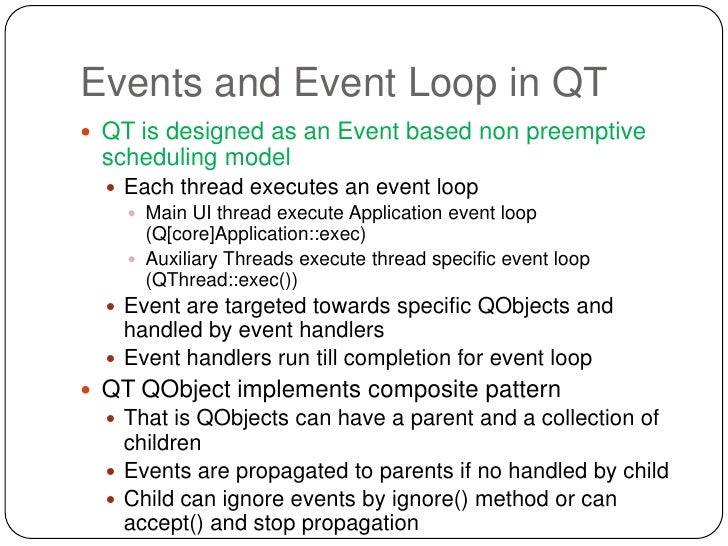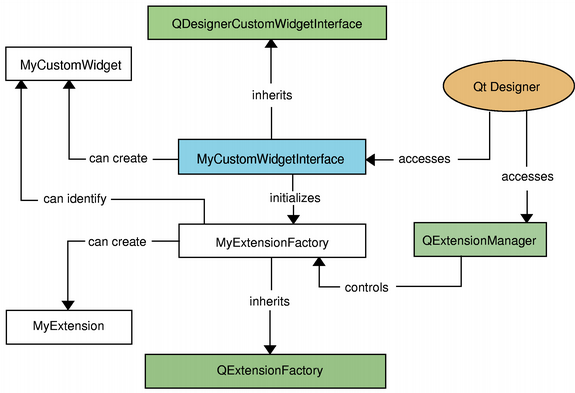Qt Signal Slot Event Loop


Example
Signals & Slots Signals and slots are used for communication between objects. The signals and slots mechanism is a central feature of Qt and probably the part that differs most from the features provided by other frameworks. Signals and slots are made possible by Qt's meta-object system. An event loop in a thread makes it possible for the thread to use certain non-GUI Qt classes that require the presence of an event loop (such as QTimer, QTcpSocket, and QProcess). It also makes it possible to connect signals from any threads to slots of a specific thread. Qt event loop, networking and I/O API. ‒ An event is posted so the slot is called later. ‒ Actual I/O happens in the event loop. Signals notify of. From my understanding, a thread WITHOUT an event loop can signal (sender) a thread with a slot corresponding to the signal (receiver) WITH an event loop, but the receiver must be running exec to receive the signal. With this in mind, I intend to have secondary threads NOT running an event loop so they will pend when not performing useful work. In Qt, we have an alternative to the callback technique: We use signals and slots. A signal is emitted when a particular event occurs. Qt's widgets have many predefined signals, but we can always subclass widgets to add our own signals to them. A slot is a function that is called in response to a particular signal.
Some times you see a signal is emitted in sender thread but connected slot doesn't called (in other words it doesn't receive signal), you have asked about it and finaly got that the connection type Qt::DirectConnection would fix it, so the problem found and everything is ok.
But generaly this is bad idea to use Qt:DirectConnection until you really know what is this and there is no other way. Lets explain it more, Each thread created by Qt (including main thread and new threads created by QThread) have Event loop, the event loop is responsible for receiving signals and call aproporiate slots in its thread. Generaly executing a blocking operation inside an slot is bad practice, because it blocks the event loop of that threads so no other slots would be called.
If you block an event loop (by making very time consuming or blocking operation) you will not receive events on that thread until the event loop will be unblocked. If the blocking operation, blocks the event loop forever (such as busy while), the slots could never be called.

Qt Signal Slot Event Loop Tool
In this situation you may set the connection type in connect to Qt::DirectConnection, now the slots will be called even the event loop is blocked. so how this could make broke everything? In Qt::DirectConnection Slots will be called in emiter threads, and not receiver threads and it can broke data synchronizations and ran into other problems. So never use Qt::DirectConnection unless you know what are you doing. If your problem will be solved by using Qt::DirectConnection, you have to carefull and look at your code and finding out why your event loop is blocked. Its not a good idea to block the event loop and its not recomended in Qt.
Qt Signal Slot Event Loop Tutorial
Here is small example which shows the problem, as you can see the nonBlockingSlot would be called even the blockingSlot blocked event loop with while(1) which indicates bad coding
Qt Signal Slot Event Loop C++
